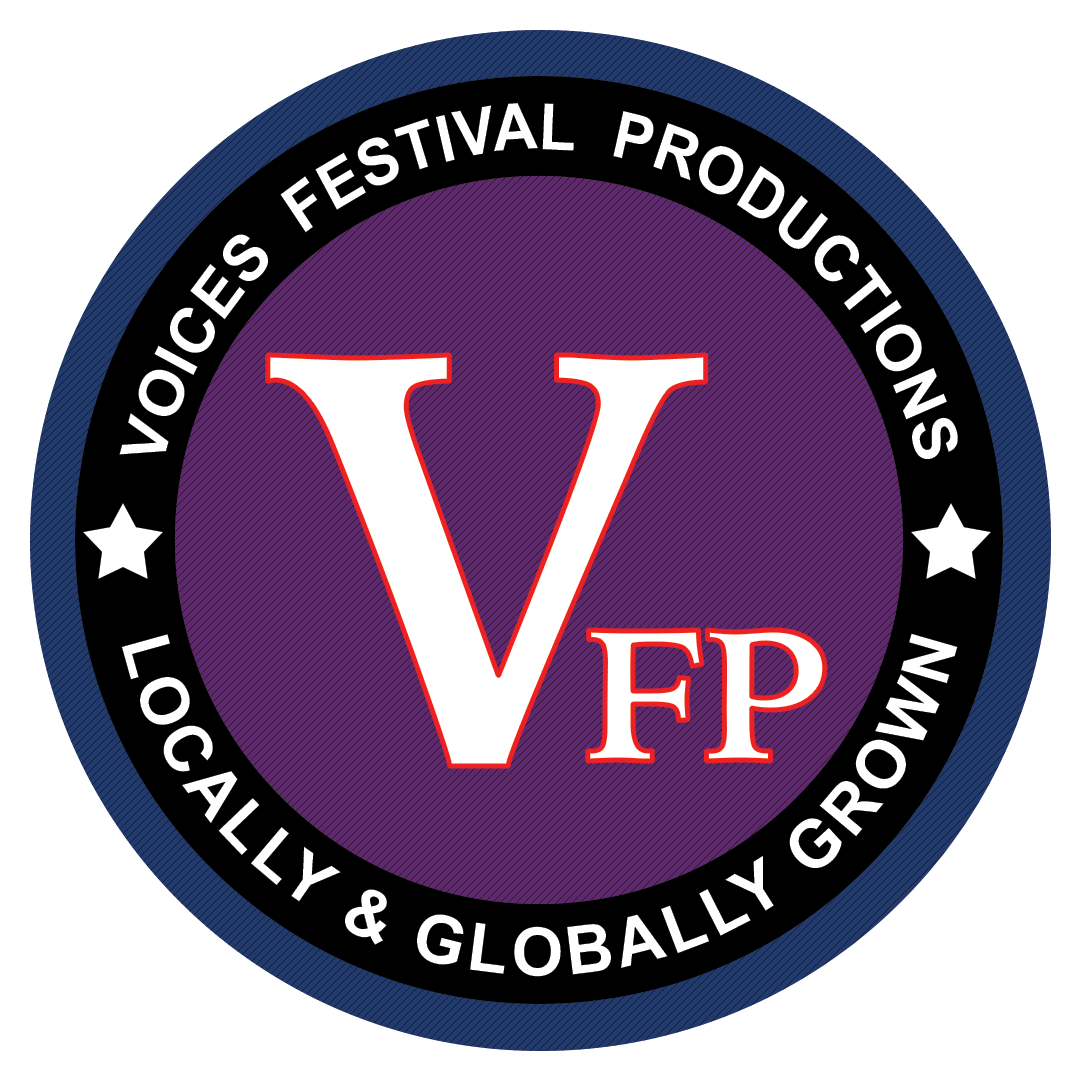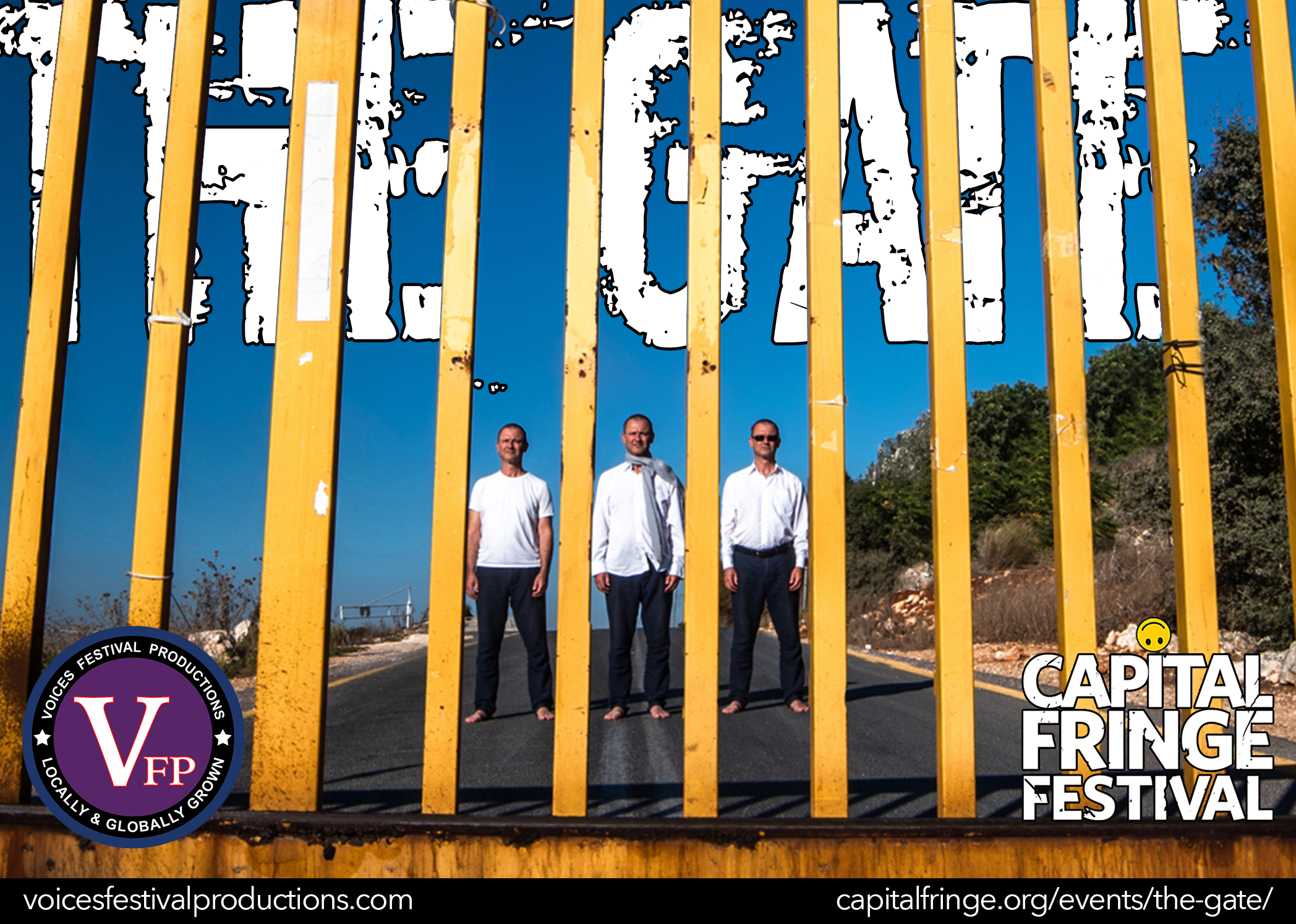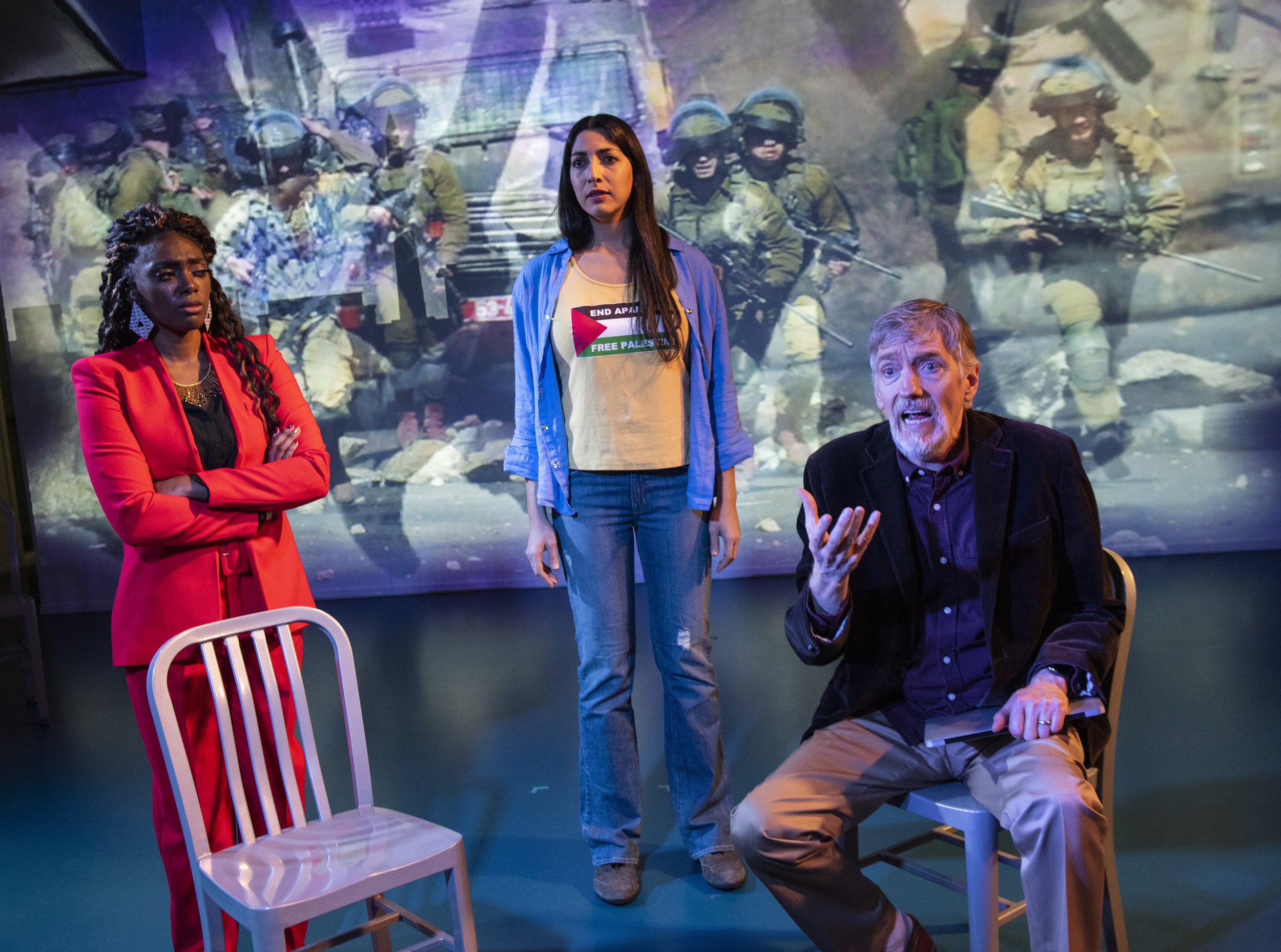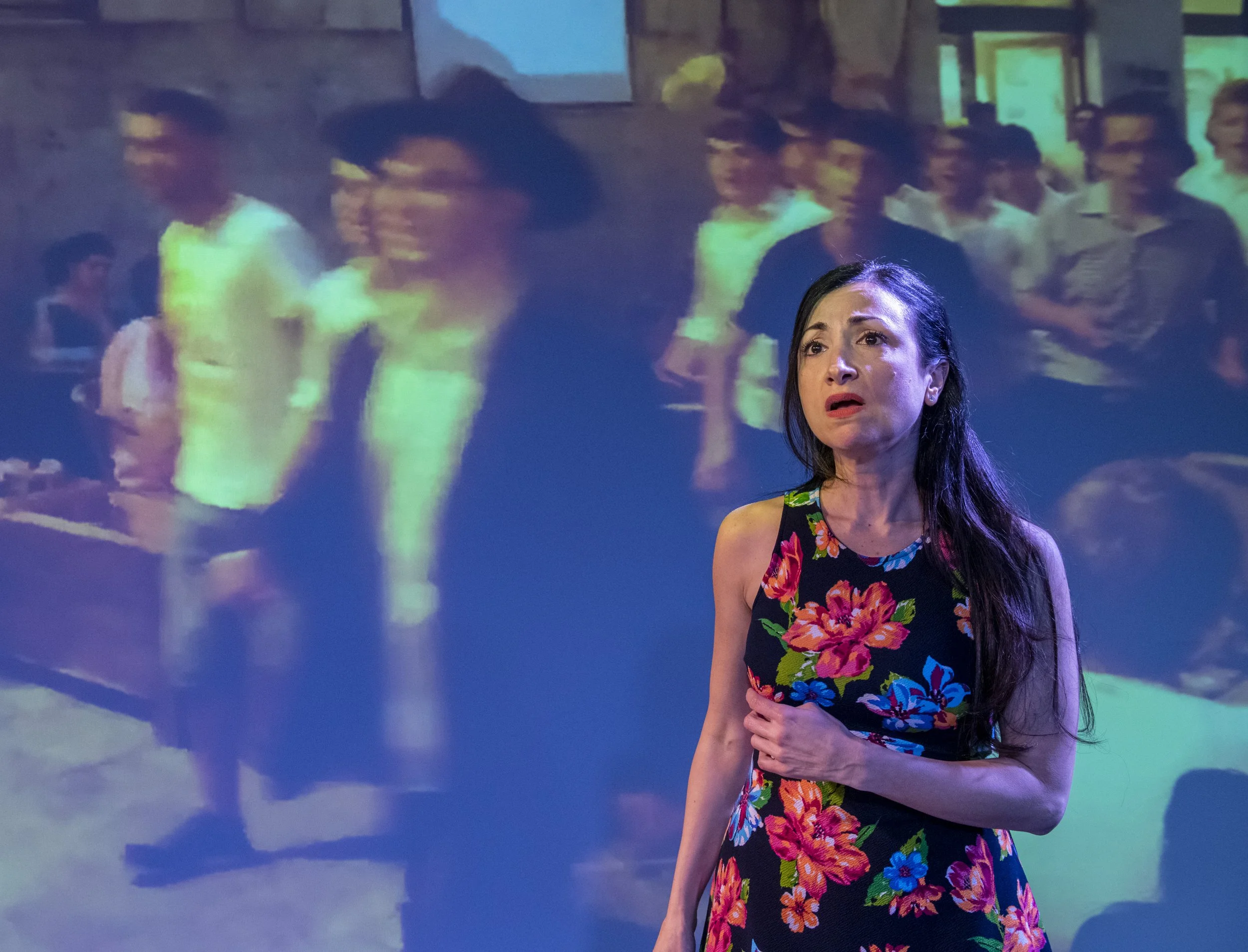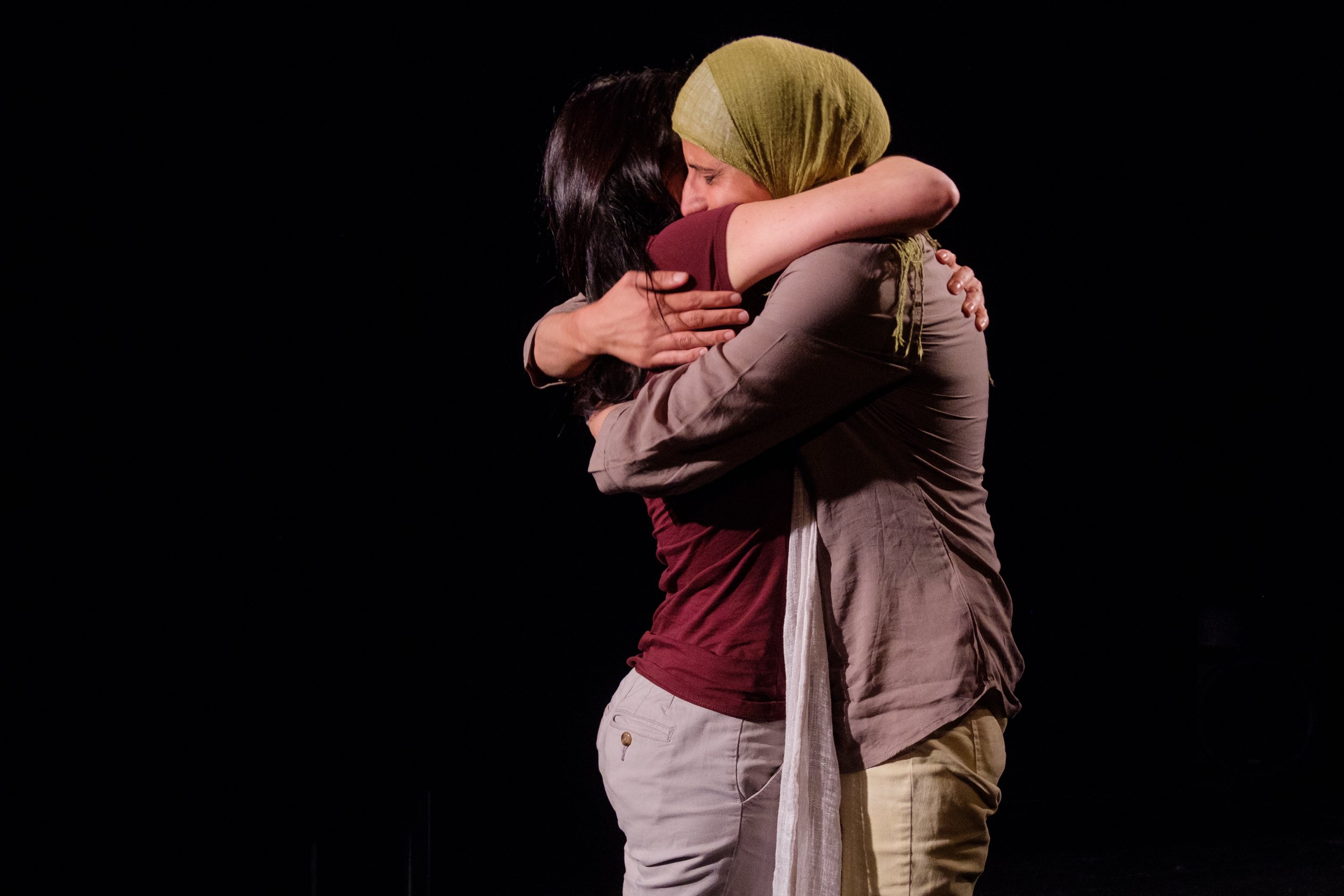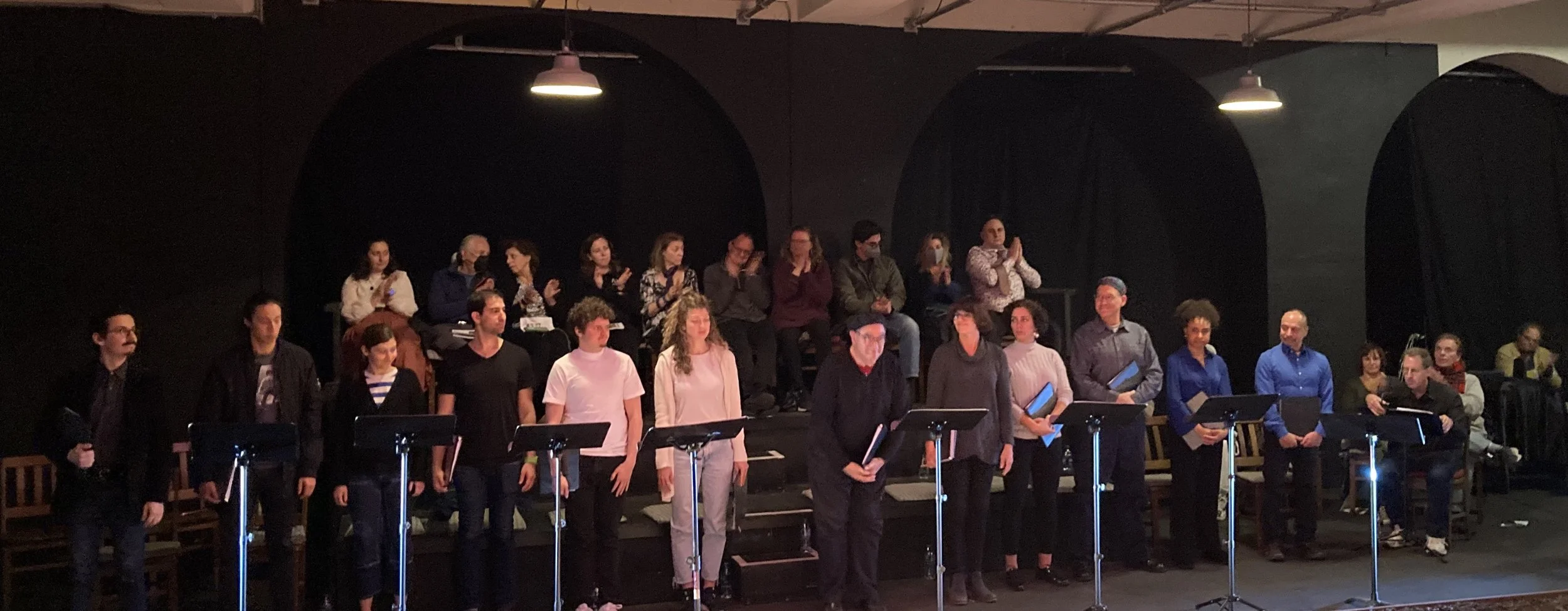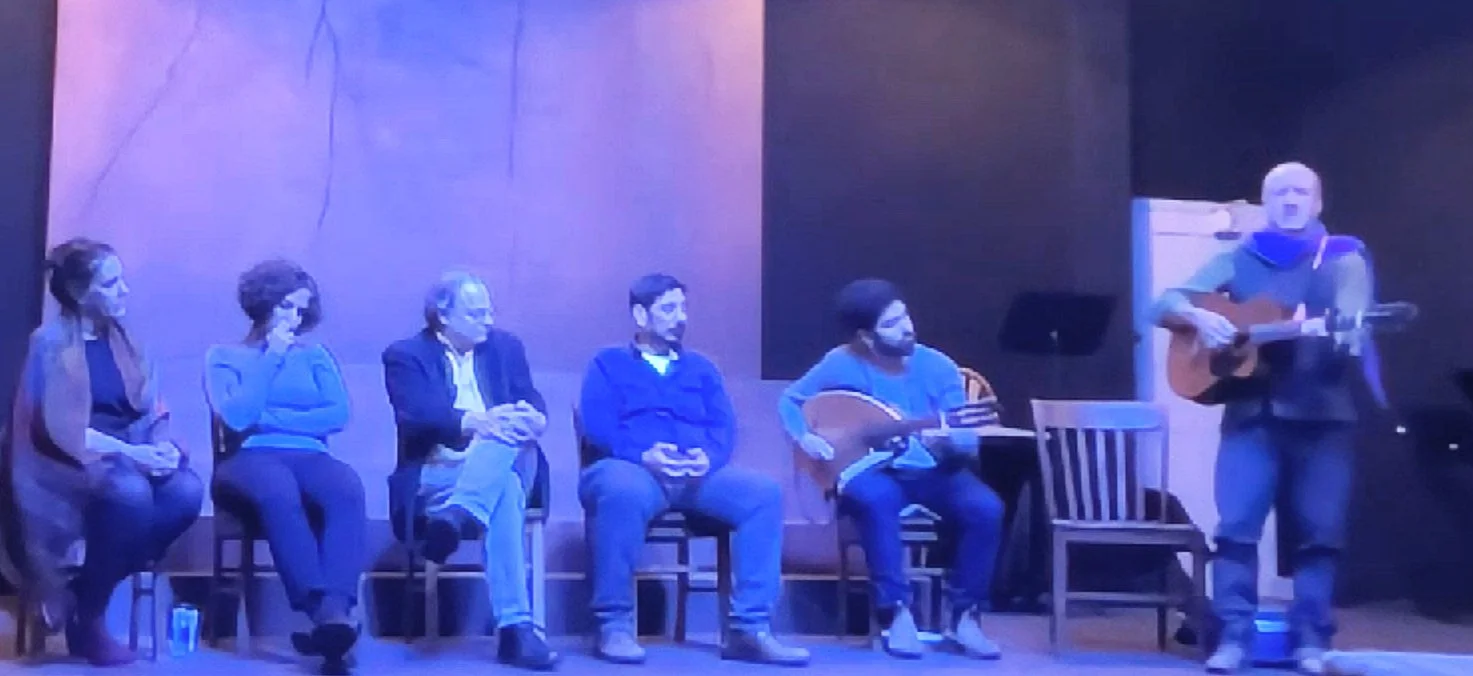Voices From a Changing Middle East Festival
A PICTORIAL History

Via Dolorosa (The Festival launches at Theater J as "Voices From a Changing Israel," 2000)

Via Dolorosa (2002 encore)

Miklat (2002)

From Tel-Aviv to Ramallah: A Beatbox Journey (2003)

Passing the Love of Women (2004)

An Evening With Ali Salem (2005)

"Voices From a Changing Israel" is re-named "Voices From a Changing Middle East" (2007)

Pangs of the Messiah (2007)

Pangs of The Messiah (2007)
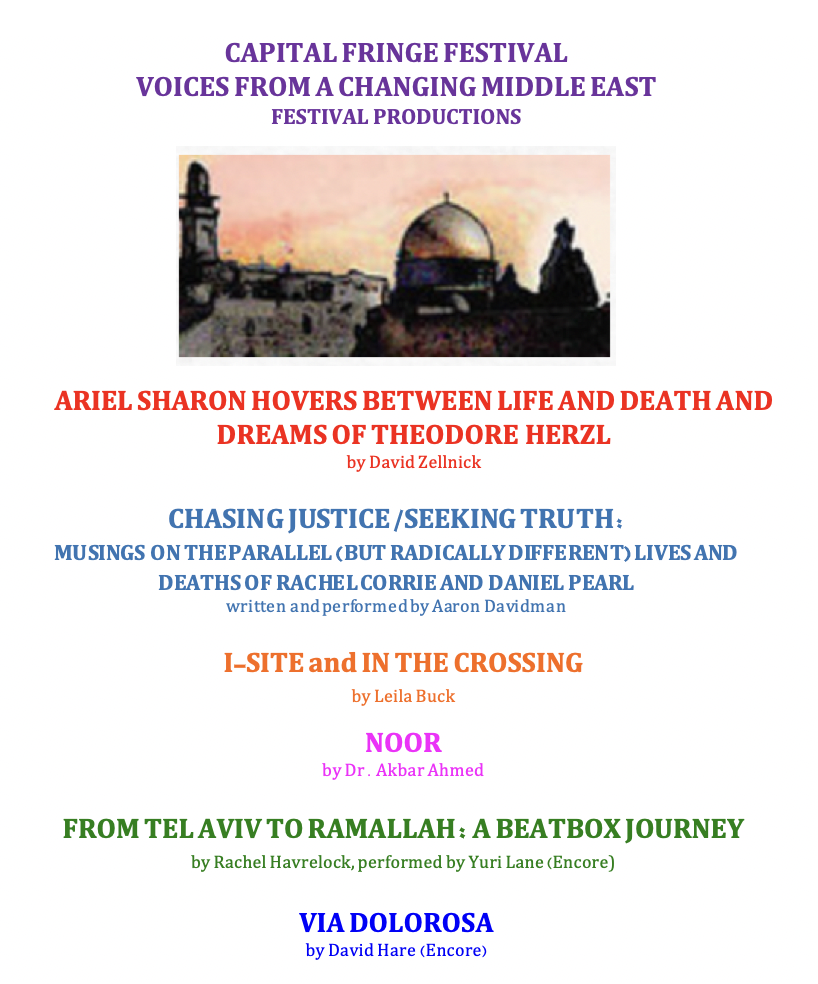
Capital Fringe Festival/Theater J co-productions (summer, 2017)

The Arab Israeli Cookbook (2007)

The Accident (2009)
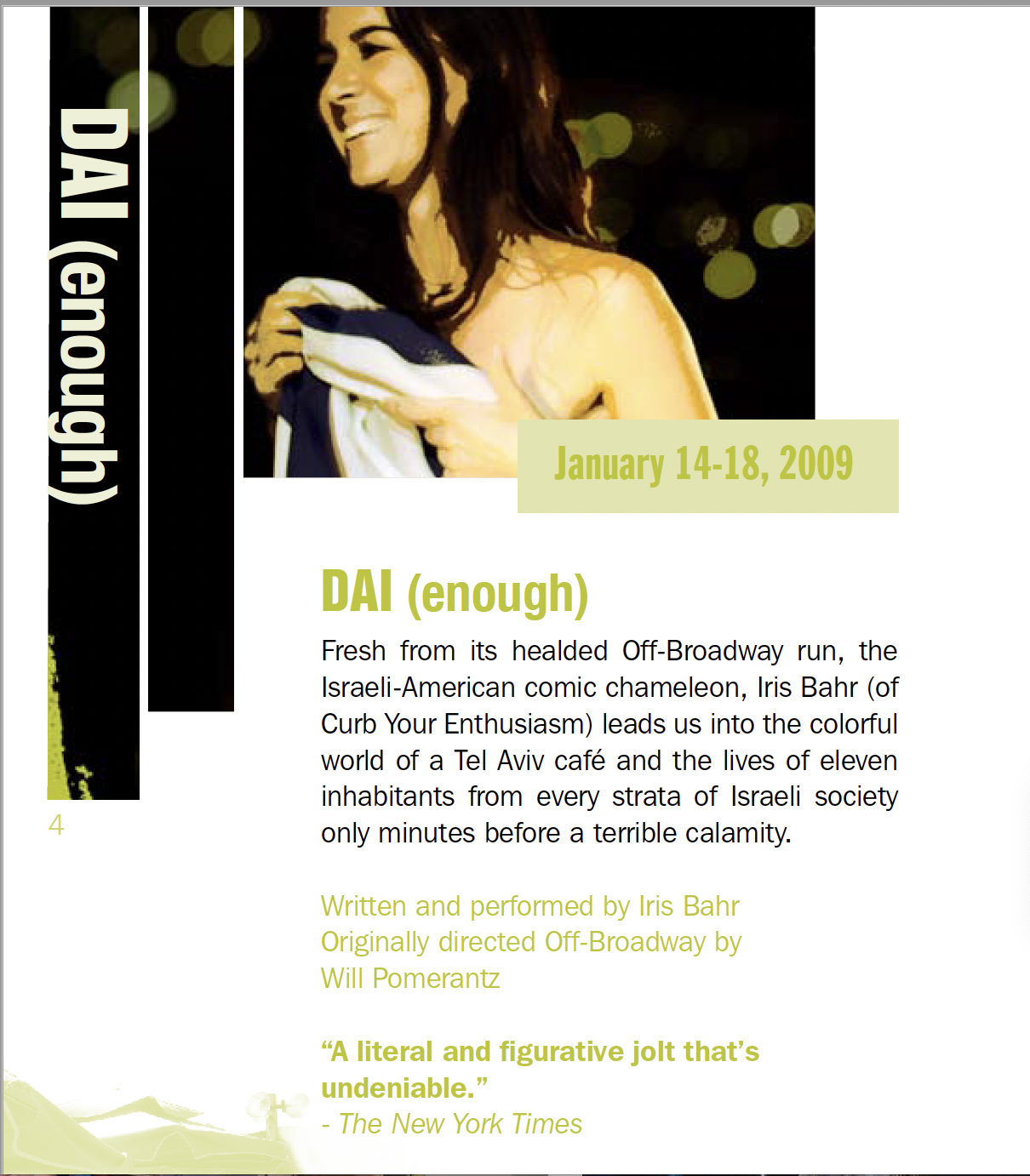
Dai (at Studio Theater, 2009)
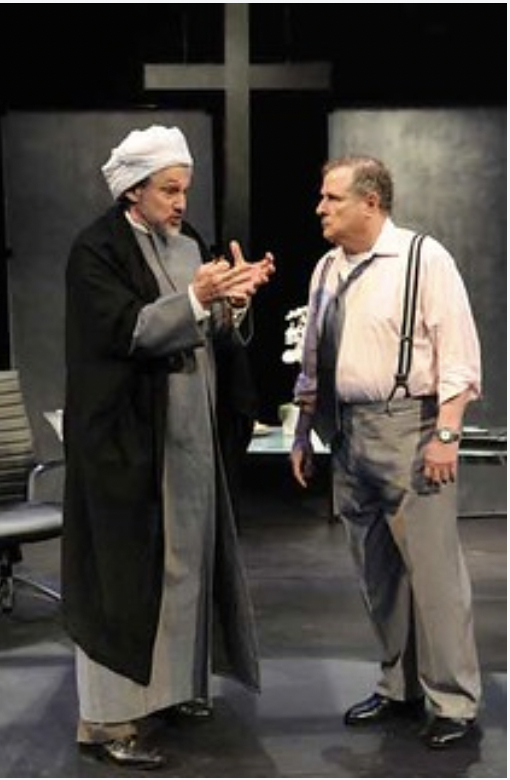
Benedictus (2009)

Mikveh (2010)

Afghan Women's Writing Project (2010)
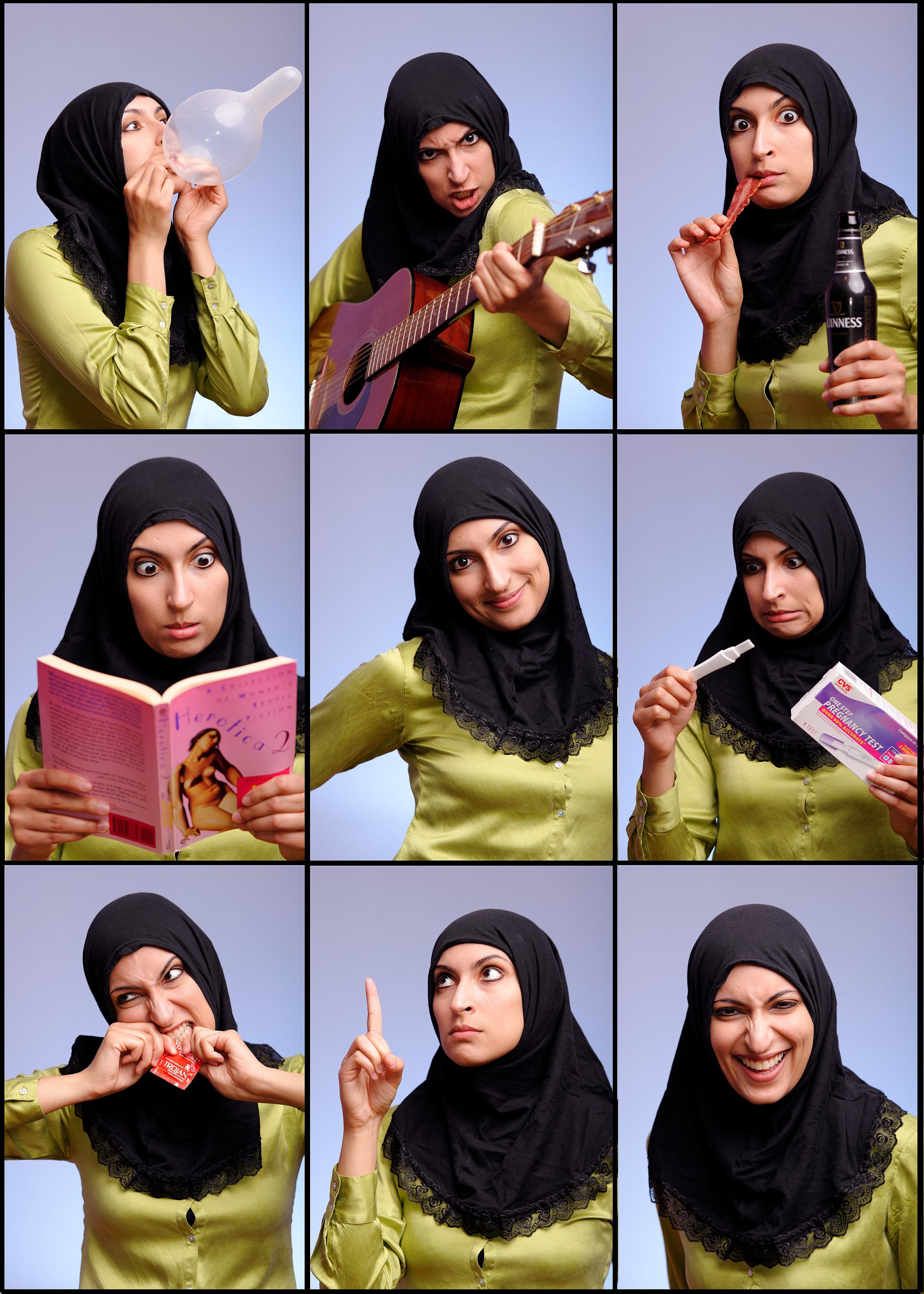
Headscarf at the Angry Bitch (2010)

Return to Haifa (2011)
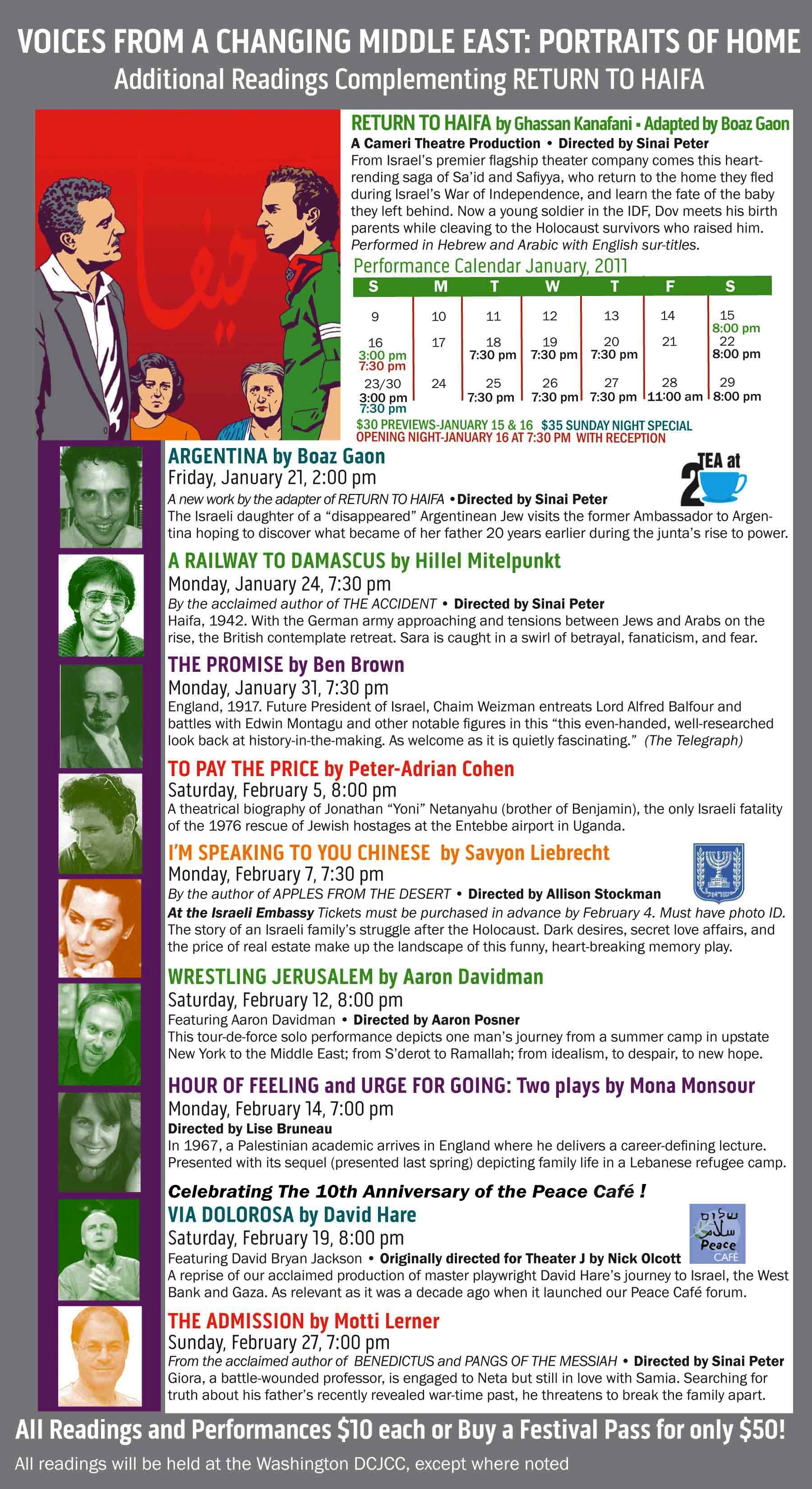
Portraits of Home Reading Series (2011)

Return To Haifa (2011)

Middle East Festival Reading Series (2011)

Apples From The Desert (2012)

Boged/An Enemy of the People (Theater J at Georgetown University, 2013)

The Admission (2014)
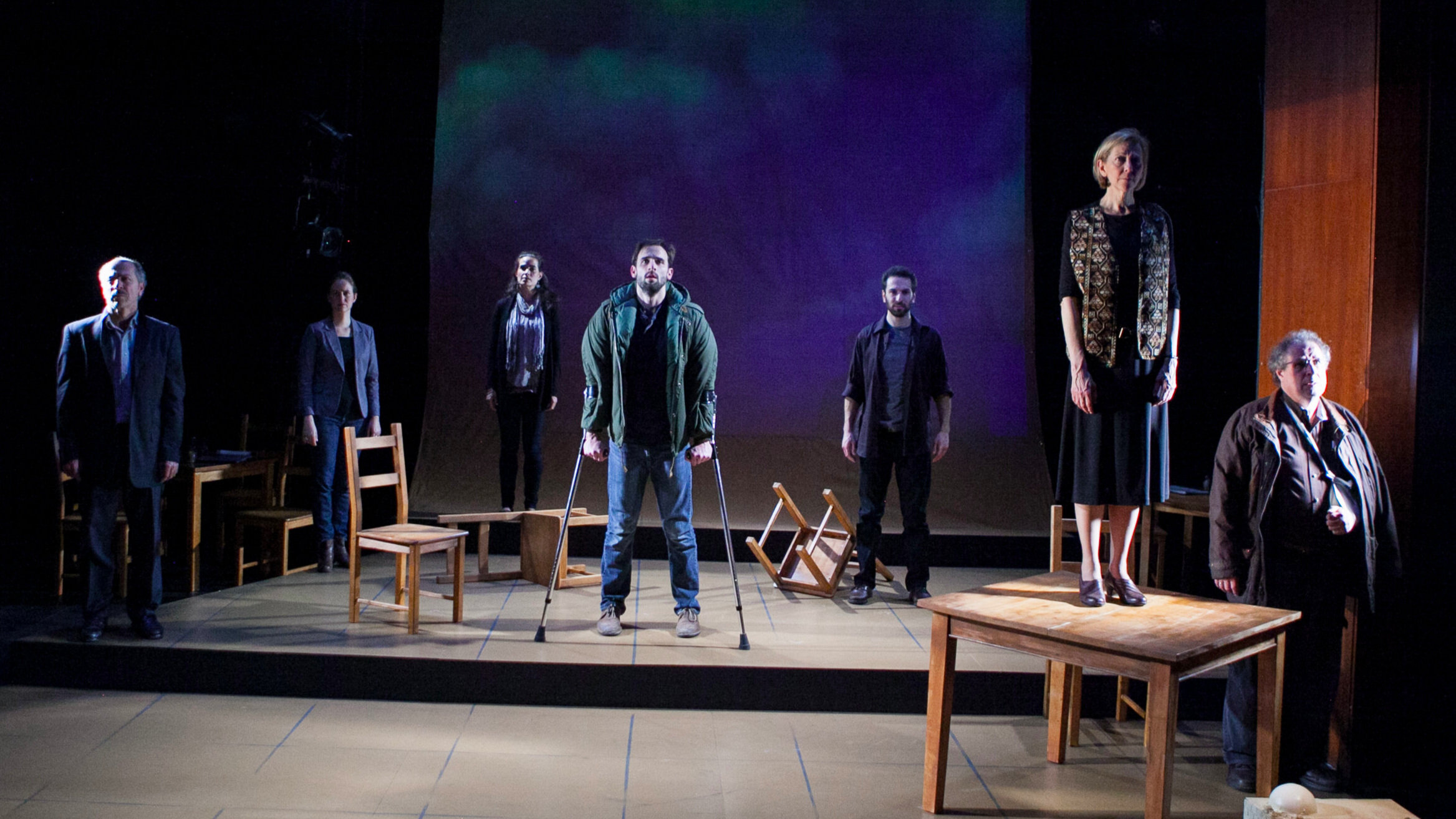
The Admission (the play transfers from Theater J to Studio Theatre, 2014)

Golda's Balcony (2014)

Wrestling Jerusalem (The Festival moves to Mosaic Theater Company of DC at the Atlas Performing Arts Center, 2016)

Wrestling Jerusalem talk-back (2016)

I Shall Not Hate (2016)

Promised Land Tour (2016)

After The War (2016)

Hkeelee (2016)

Ulysses on Bottles (2017)

The Return (2017)
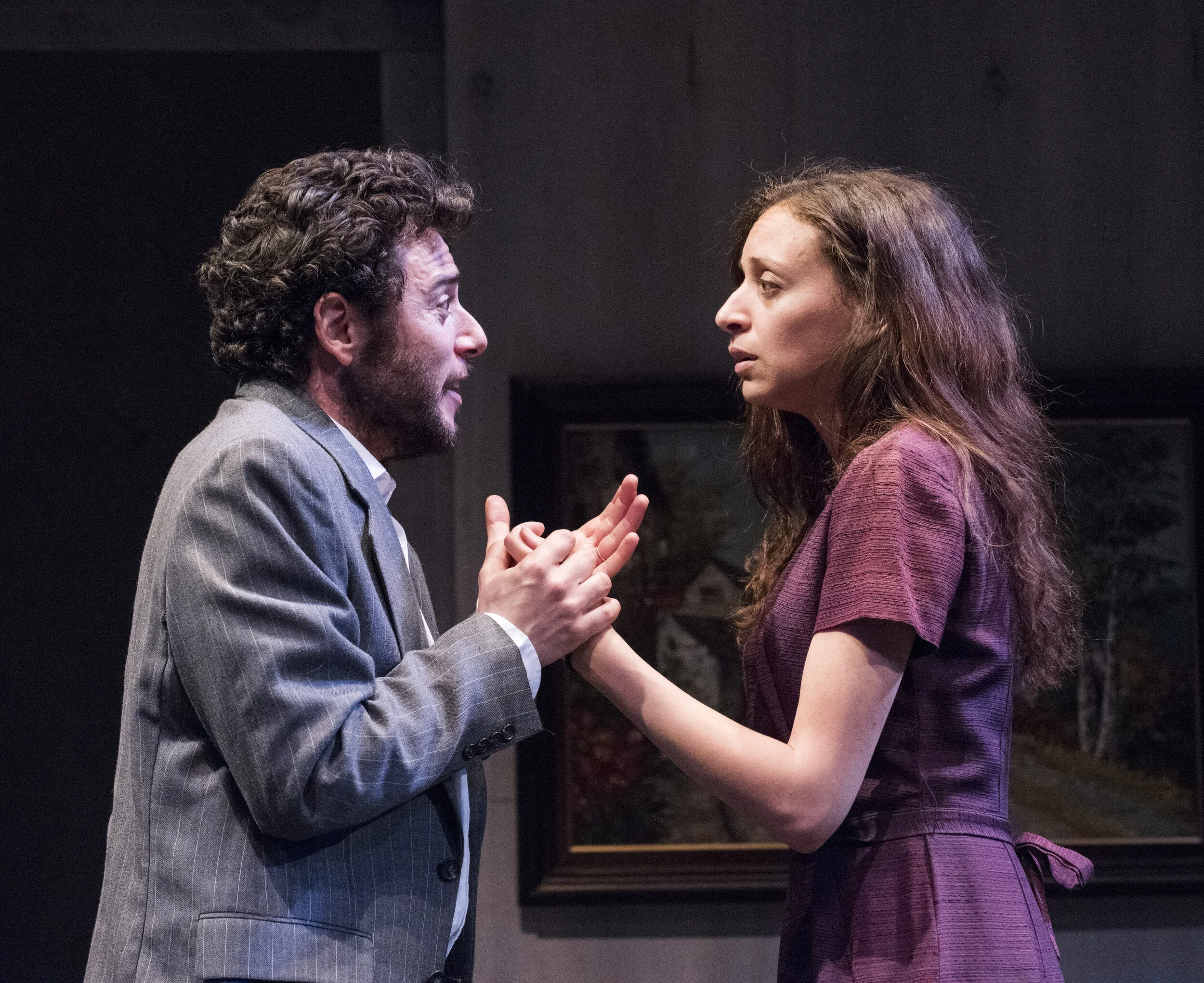
The Vagrant Trilogy (2018)
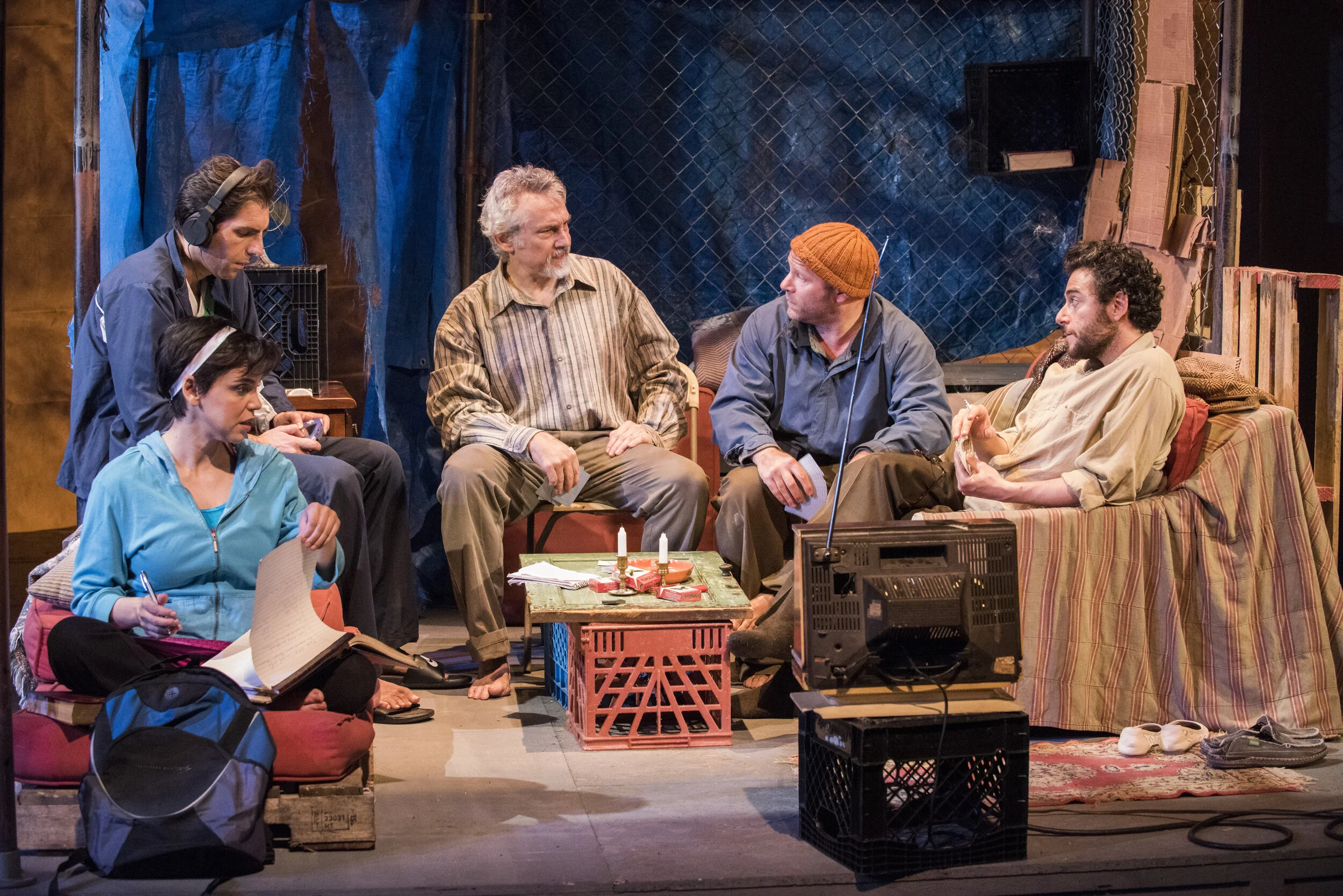
The Vagrant Trilogy (2018)

Paper Dolls (2018)
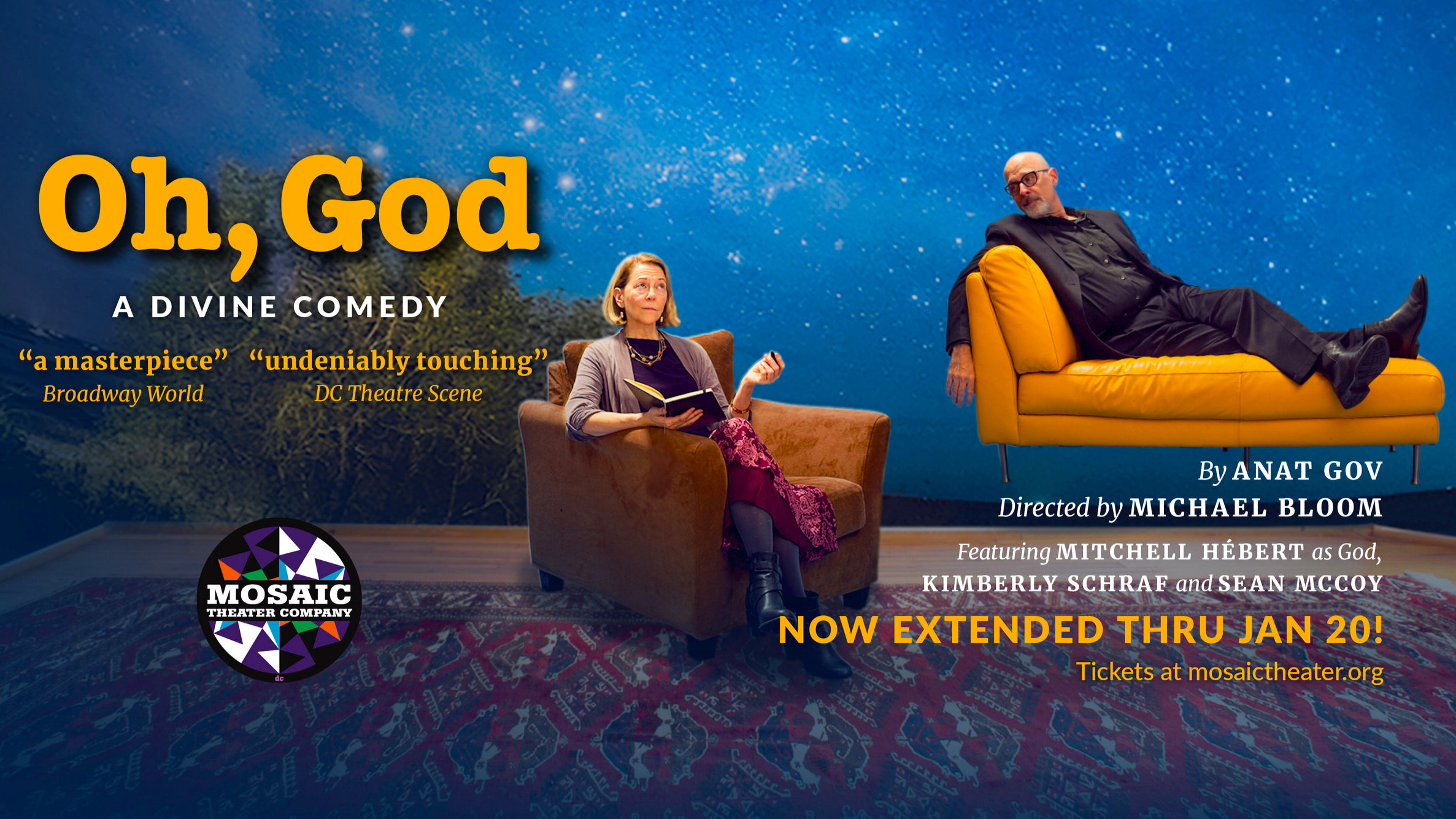
Oh, God (2018-19)

Shame 2.0 (2019)

Pilgrims Musa & Sheri in the New World (2020)

No Desert Roses (2020)
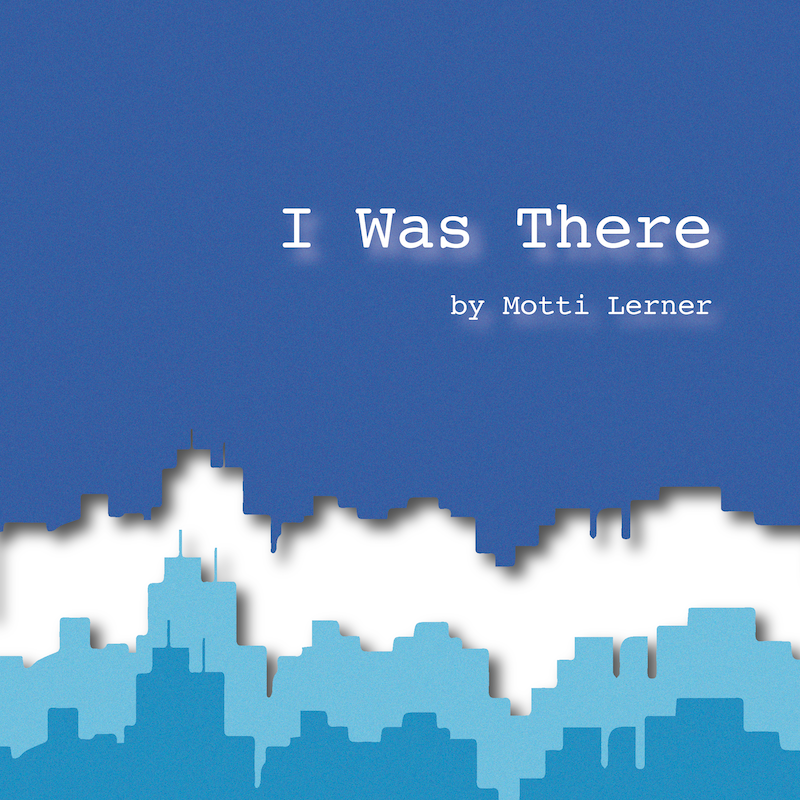
I Was There (2020)
The Gate (VFP @ Capital Fringe, 2022)
My Calamitous Affair with The Minister... (VFP at The Corner, 2022)
Home? (VFP at The Corner, 2022)
I, Dareen T (streamed, 2022)
Workshop Reading Series (2023-24)
Balfour (2023)
Almond Blossom at Deir Yassin (2023)
Almond Blossom at Deir Yassin (2023)
Stay Safe (2024)
Stay Safe (2024)
How to Remain a Humanist After a Massacre in 17 Steps (2024)
Live From Jenin: Lessons From The War (2024)
Humanist/Jenin Discussion (2024)
NARRATIVE History
One of Voices Festival Productions’ core components is the long-running “Voices From a Changing Middle East Festival,” which has been bringing the souls and struggles of the people of the Middle East to life for the past 24 years — particularly Israelis and Palestinians — humanizing headlines and creating intersectional bonds between communities here in the US and in the region.
Created in 2000 by Founding Artistic Director Ari Roth while serving as Artistic Director at Theater J (the professional resident company of the DCJCC), the Voices Festival grew to become a hub for civic and cultural drama in DC, offering 20 provocative productions and 39 workshop presentations to tens of thousands of local and regional audience members while housed at Theater J. Among production highlights: Motti Lerner’s West Bank drama, Pangs of the Messiah (2007); Hadar Galron’s cry for feminism within the religious community, Mikveh (2010); the Cameri Theatre production of Return to Haifa, performed in Arabic and Hebrew adapted by Boaz Gaon from the landmark Palestinian novella by Ghassan Kanafani (2011); and the acclaimed 2014 workshop production of Motti Lerner’s The Admission, which soon transferred to Studio Theatre, about an alleged massacre outside Haifa during the war of 1948.
As the critically-hailed Festival grew in popularity and acclaim, it also attracted detractors, including a small outfit called Citizens Opposed To Propaganda Masquerading as Art (COPMA) that agitated against Roth and ultimately triggered the dramatic inception of Mosaic Theater Company in December, 2014, after the JCC canceled the Voices Festival in response to select pressure and ousted Roth for voicing resistance to the cancellation.
Hundreds of noted figures in the world of American and international theater contested the termination, including Pulitzer Prize-winning author Tony Kushner and The Public Theater’s Oskar Eustis, who called Roth’s ouster "an act of political censorship.” An open letter, signed by an unprecedented 120 artistic directors around the country demanded Roth’s reinstatement, stating: “A free people need a free art; debate, dissent, and conflict are at the heart of what makes theater work, and what makes democracy possible.”
During Mosaic Theater Company’s inaugural 2015-16 season, the newly transplanted Voices from a Changing Middle East Festival staged five works including Wrestling Jerusalem by Aaron Davidman; I Shall Not Hate by Izzeldin Abuelaish (performed in Arabic and Hebrew); Hkeelee by Leila Buck; Promised Land by Shachar Pinkhas and Shay Pitovsky; and After the War by Motti Lerner. In Mosaic's Season Two, the Festival marked the 50th anniversary of The Occupation with dual Israeli/Palestinian perspectives, offering Gilad Evron’s Ulysses on Bottles and The Return by Hanna Eady and Edward Mast.
In the winter of Mosaic’s Season Three, the Festival launched a four-campus tour with seminal works traveling to Oklahoma and Eastern Mennonite Universities, Grinnell College, and the University of Chicago, presenting a multi-faith lens on the Palestinian-Israeli Conflict. That same spring, Mosaic brought two nationally renowned directors and two sets of multilingual ensembles to DC to produce the most ambitious productions of the Festival’s history. Thanks to enhancement support provided by Broadway and West End producers Stanley Buchthal and Bob & Co, Broadway director Mark Brokaw staged Paper Dolls, Philip Himberg’s play with music based on the acclaimed Israeli documentary film by Tomer Heymann about Filipino guest workers in Tel Aviv. And The Public Theater of New York provided dramaturgical support for the world premiere staging of Mona Mansour’s The Vagrant Trilogy, four decades in the life of Palestinian family, staged by Mark Wing-Davey.
In 2018-19, the Voices Festival produced its first comedy, Oh, God by Anat Gov; followed by a searing documentary theater piece about cultural censorship in Israel, Shame 2.0 (With Comments From The Populace) by Einat Weizman with Morad Hassan. The 2020 Voices Festival innovated once more with its first romantic comedy, the regional premiere of Yussef El Guindi’s Pilgrims Musa and Sheri in the New World, undergirding themes of “Egypt in Mind and Memory” while continuing its explorations of long-running Israeli-Palestinian dramas presented in a series of readings.
In November 2020 Roth stepped down from Mosaic to retain the curatorial balance and dialogic principles of Voices From a Changing Middle East Festival, promising to stage new dramas between and about Israelis, Palestinians, and neighboring citizens from a prismatic and multi-dimensional lens, maintaining a commitment to intercultural encountering onstage and off. In 2022, VFP staged its first Voices From a Changing Middle East Festival producing Robbie Gringras’ The Gate (at Capital Fringe Festival in Georgetown), Roth’s My Calamitous Affair With The Minister of Culture & Censorship, and Hend Ayoub’s Home? Or A Palestinian Woman’s Pursuit of Life, Liberty & Happiness, while streaming Einat Weizman and Dareen Tatour’s I, Dareen T.
Voices From a Changing Middle East RETURNS TO ISRAEL FOR NEW PLAY DEVELOPMENT & WAR BREAKS OUT, 2023
Read Founding Artistic Producing Director Ari Roth’s Facebook Journal:
TEN DAYS IN ISRAEL: OCTOBER 5 – 15, 2023
____
Press for Voices From a Changing Middle East
“Jewish DC theater maven quits company over ‘exclusively Palestinian’ festival. Ari Roth resigns from Mosaic, 6 years after he was fired by Theater J for allegedly being too pro-Palestinian”
(Times of Israel, 2020)
“Mosaic Theater Company Launches National Tour Of Renowned Voices From Changing Middle East Festival”
(2018)
“What happens when a play about Palestinians goes to American campuses”
(2018)
“An anguished cadre of Israeli playwrights looks to America to stage its work”
(WP, 2018)
“A playwright who wants to change society, not merely observe it”
(WP, 2016)
“Talking Shop and Taking Stock: A History of the Voices Festival”
with Ari Roth (DCMTA, 2016)
“‘The Imperative to Reconcile’: A Conversation with Ari Roth”
(DCMTA, 2014)
“‘Return to Haifa’ Crosses Borders of War“
(WP, 2011)
All photo credits on this page courtesy of Stan Barouh Photography and C. Stanley Photography. For more information, visit stanbarouhphotography.smugmug.com or visit www.cstanphoto.com (specific credit attribution to come). All 2019 + 2020 photos by Christopher Banks, courtesy of Mosaic Theater Company of DC.